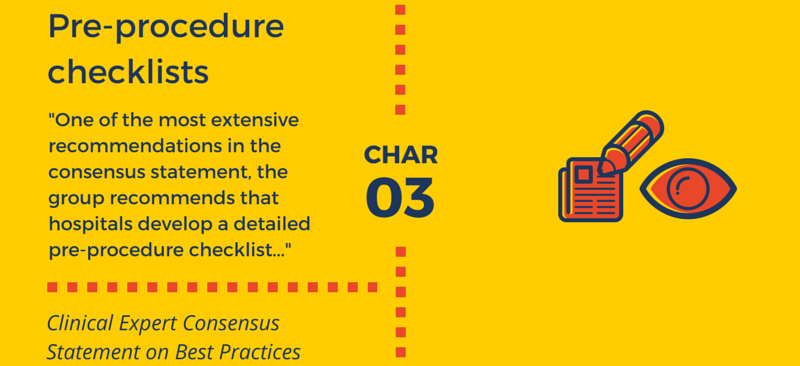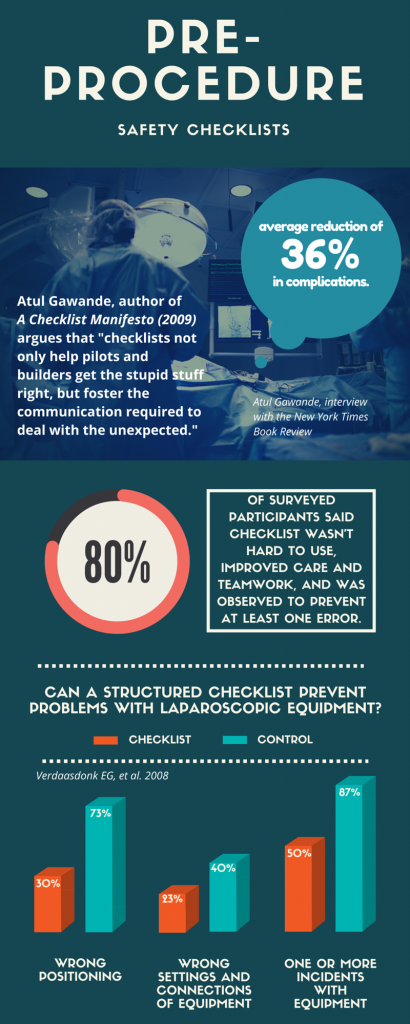
"One of the most extensive recommendations in the consensus statement," writes the Advisory Board Company's Jake Hartman on a consensus statement released by cardiology leaders in a 2012 edition of Catheterization and Cardiovascular Interventions, "the group recommends that hospitals develop a detailed preprocedure checklist to ensure all safety precautions appropriate for the cath lab have been taken."
In December of 2009, Atul Gawande, MD released a book called A Checklist Manifesto, a strong argument for the use of pre-procedure checklists in medicine and other fields.
In Malcolm Gladwell's review of the book, he summarizes, "[Gawande] walks us through a series of examples from medicine showing how the routine tasks of surgeons have now become so incredibly complicated that mistakes of one kind or another are virtually inevitable: it's just too easy for an otherwise competent doctor to miss a step, or forget to ask a key question or, in the stress and pressure of the moment, to fail to plan properly for every eventuality... Experts need checklists---literally---written guides that walk them through the key steps in any complex procedure."
 Gawande's book covers his research team's development of a simple, safe surgery checklist. In an interview with the New York Times Book Review, Gawande explained that the checklist was applied around the world and resulted in an average reduction of 36 percent in procedure complications.
Gawande's book covers his research team's development of a simple, safe surgery checklist. In an interview with the New York Times Book Review, Gawande explained that the checklist was applied around the world and resulted in an average reduction of 36 percent in procedure complications.
Despite resistance to the use of checklists, 80 percent of Gawande's participants responded favorably when asked about their experience with his team's checklist---it wasn't hard to use, it improved care and teamwork, and was observed to prevent at least once error, said Gawande.
A similar study published in 2008 used a checklist in an attempt to reduce complications when using laparoscopic equipment which boasts a notorious high incidence of technical problems. A 28-item checklist was developed based on frequently occurring equipment problem; for those using the checklist, the total number of incidents per procedure was 53 percent lower than the control.
A Checklist Manifesto also discusses industries like construction and aviation. Reviewer Sandeep Jauhar writes, "[Gawande] maintains that checklists not only help pilots and builders get the stupid stuff right, but foster the communication required to deal with the unexpected."
Checklists can not only reduce the rate of complications, it can also improve communication about patient safety and outcomes, our first characteristic of highly effective cardiovascular teams.
The Agency for Healthcare Research and Quality's Patient Safety Network cautions, however, "Checklists are a remarkably useful tool in improving safety, but they are not a panacea. As checklists have been more widely implemented, it has become clear that their success depends on appropriately targeting the intervention and utilizing a careful implementation strategy."
Does your team use pre-procedure checklists? What has been your experience with them? Leave a comment!